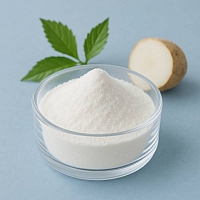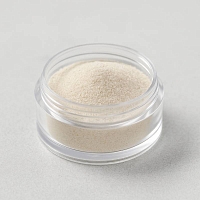-
 Absolutes
Absolutes
-
 Active Complexes
Active Complexes
-
 Actives and Peptides for Cosmetics
Actives and Peptides for Cosmetics
-
 Amino Acids
Amino Acids
-
 Food Flavorings
Food Flavorings
-
 Ayurveda
Ayurveda
-
 Vitamins
Vitamins
-
 Gelling Agents and Thickeners
Gelling Agents and Thickeners
-
 Hydrosols and Floral Waters
Hydrosols and Floral Waters
-
 Hydrolyzed Proteins
Hydrolyzed Proteins
-
 Fragrant and aromatic substances
Fragrant and aromatic substances
-
 Acids, Salts, Alcohols, and Alkalis
Acids, Salts, Alcohols, and Alkalis
-
 Preservatives and Antioxidants
Preservatives and Antioxidants
-
 Cosmetic Raw Materials
Cosmetic Raw Materials
-
 Dyes, Pearlescents, and Glitters
Dyes, Pearlescents, and Glitters
-
 Face Masks, Scrubs, and Dried Flowers
Face Masks, Scrubs, and Dried Flowers
-
 Oils, batters, macerates, oil mixtures
Oils, batters, macerates, oil mixtures
-
 Candle Supplies
Candle Supplies
-
 Melt and Pour Soap Bases
Melt and Pour Soap Bases
-
 Base for cosmetics, cream, serum, shampoo
Base for cosmetics, cream, serum, shampoo
-
 Fragrance Oils
Fragrance Oils
-
 Surfactants
Surfactants
-
 Peelings for Skin
Peelings for Skin
-
 Herbal Powders and Plant
Herbal Powders and Plant
-
 Silicones and Conditioning Surfactants for Hair
Silicones and Conditioning Surfactants for Hair
-
 Raw materials for dietary supplements
Raw materials for dietary supplements
-
 Packaging for Cosmetics and Perfumes
Packaging for Cosmetics and Perfumes
-
 Molds, Packaging, Tools
Molds, Packaging, Tools
-
 Organic Extracts
Organic Extracts
-
 Emollients for Cosmetics
Emollients for Cosmetics
-
 Emulsifiers
Emulsifiers
-
 Essential Oils
Essential Oils
Citrus Pectin: Your Natural Solution for Stabilization and Texture
Unleash the power of nature with our Citrus Pectin, a premium, 100% natural powder sourced from Switzerland. This light beige powder, also known by its INCI name Citrus Pectin (E-440), is a versatile ingredient renowned for its exceptional binding, emulsion stabilizing, and viscosity controlling properties. While commonly recognized as a food additive, its unique attributes make it an invaluable component in cosmetics, sports nutrition, and dietary supplements. Experience the difference of a truly natural and effective stabilizer with worldwide shipping available.
Description and Key Features
Citrus Pectin is a naturally occurring polysaccharide found in the cell walls of citrus fruits. Our high-quality pectin is extracted to deliver a fine, light beige powder that is highly effective even at low concentrations. It's often synonymous with other gelling and thickening agents like agar-agar and gelatin, yet it offers distinct advantages, particularly its plant-based origin and unique textural contributions.
Key features:
- 100% Natural Quality: Derived purely from citrus fruits, ensuring a natural and wholesome ingredient for your formulations.
- Binding and Stabilizing Agent: Acts as an excellent binder and emulsion stabilizer, preventing separation of ingredients and creating cohesive formulations.
- Viscosity Control: Provides effective viscosity control, allowing you to achieve desired textures from thin lotions to thick gels.
- Highly Soluble: While it can absorb up to 20% water in a humid atmosphere, for optimal performance, pectin is best dispersed in water or other polar liquids, often requiring heat for full dissolution and activation.
- Efficient Usage Rate: Effective at very low inclusion rates, typically 0.2-0.5%, making it an economical choice for large-scale production.
- Versatile Applications: A multipurpose ingredient suitable for a broad spectrum of products beyond just food.
Versatile Applications and Usage Areas
Citrus Pectin is a powerhouse ingredient, extending its utility far beyond its traditional role in jams and jellies. Its unique gelling and stabilizing properties make it highly sought after across various industries:
- Food Additive:
- Jams, Jellies, and Preserves: Its primary and most well-known use, forming a stable gel that gives these products their characteristic texture.
- Fruit Preparations: Used in fruit fillings for pies, tarts, and yogurts to control texture and prevent syneresis (weeping).
- Confectionery: Applied in gummy candies and fruit snacks for chewiness and stability.
- Dairy Products: Acts as a stabilizer in yogurts, fermented milks, and fruit-flavored drinks to prevent separation and improve mouthfeel.
- Beverages: Can be used to thicken fruit juices or smoothies, or to provide body to low-calorie drinks.
- Sauces and Dressings: Helps to thicken and stabilize various sauces, dressings, and condiments, improving their consistency.
- Cosmetics and Personal Care:
- Emulsion Stabilizer: Crucial for preventing oil and water phases from separating in creams, lotions, and balms, ensuring a stable and homogenous product. This leads to a longer shelf life and better user experience.
- Viscosity Controller/Thickener: Used to achieve desired textures in products like shampoos, conditioners, shower gels, and facial cleansers, ranging from a light serum to a rich cream. It provides a pleasant sensory feel without being overly sticky.
- Hair Styling Products: Can be incorporated into hair gels and mousses to provide hold and texture due to its binding properties.
- Masks (Facial and Hair): Contributes to the texture and adherence of mask formulations, making them easier to apply and remove.
- Natural Gelling Agent: Offers a natural alternative to synthetic gelling agents in various formulations, appealing to consumers seeking clean beauty products.
- Sports Nutrition & Dietary Supplements:
- Tablet/Capsule Binder: In powdered supplements, pectin can act as a natural binder, helping to form cohesive tablets or fill capsules uniformly, preventing powder segregation.
- Suspension Agent: Helps to keep insoluble particles suspended evenly in liquid supplements, ensuring consistent dosing.
- Texture Enhancer: Can improve the texture and mouthfeel of powdered drink mixes when reconstituted with water.
- Fiber Source (Soluble Fiber): As a soluble fiber, pectin contributes to digestive health, making it a valuable addition to functional foods and dietary supplements aimed at gut health.
- Other Applications:
- Pharmaceutical Industry: Used as a binder in tablet formulations and as a gelling agent in various oral medications.
When incorporating Citrus Pectin, remember its optimal usage rate of 0.2-0.5% and ensure proper dispersion, often involving pre-mixing with a small amount of sugar or other dry ingredients to prevent clumping, followed by hot dispersion for full activation.
Cosmetic Recipe: "Silky Smooth" Natural Face Cream
Create a luxurious, naturally-derived face cream with a smooth, stable texture using Citrus Pectin as an emulsion stabilizer and viscosity controller.
| Ingredient | Percentage (%) | Function |
|---|---|---|
| Phase A (Water Phase) | ||
| Distilled Water | Up to 100% | Base of the cream |
| Glycerin | 3% | Humectant, draws moisture to the skin |
| Citrus Pectin | 0.3% | Emulsion stabilizer, viscosity controller |
| Phase B (Oil Phase) | ||
| Emulsifying Wax (e.g., Polawax) | 5% | Primary emulsifier, binds oil and water phases |
| Shea Butter | 5% | Nourishing, moisturizing, skin conditioning |
| Jojoba Oil | 5% | Mimics skin's natural sebum, non-comedogenic |
| Phase C (Cool Down Phase) | ||
| Preservative (e.g., Geogard Ultra) | 1% | Protects against microbial growth |
| Vitamin E | 0.5% | Antioxidant, skin conditioning |
| Essential Oil/Fragrance Oil (optional) | 0.2-0.5% | Provides desired scent |
Instructions for Preparation:
- Sanitization: Thoroughly sanitize all your equipment (beakers, stirring rods, containers) using isopropyl alcohol and allow them to air dry completely.
- Phase A (Water Phase): In a heat-resistant beaker, combine distilled water and glycerin. Carefully sprinkle the Citrus Pectin over the surface of the water, ensuring it disperses without clumping. Let it sit for 5-10 minutes to hydrate. Then, gently stir until dissolved. Heat this phase to 70-75°C (158-167°F) on a double boiler or in a microwave (using short bursts).
- Phase B (Oil Phase): In a separate heat-resistant beaker, combine emulsifying wax, shea butter, and jojoba oil. Heat this phase to 70-75°C (158-167°F) on a double boiler until all solids are completely melted and clear.
- Emulsification: Slowly pour the hot water phase (Phase A) into the hot oil phase (Phase B) while continuously stirring with a stick blender or hand mixer on low speed. Continue blending until a homogeneous, creamy emulsion forms. The mixture will start to thicken as it cools.
- Cool Down: Continue stirring occasionally as the cream cools down to below 40°C (104°F). This helps to prevent separation and ensures a smooth texture.
- Phase C (Cool Down Phase): Once the cream has cooled below 40°C (104°F), add the preservative, Vitamin E, and optional essential oil/fragrance oil. Stir thoroughly until all ingredients are well incorporated.
- pH Adjustment (Optional, but Recommended): Check the pH of your cream. For a face cream, an optimal pH is typically between 5.0 and 6.0. If needed, adjust by adding a drop of diluted lactic acid (to lower pH) or a diluted baking soda solution (to raise pH).
- Packaging: Transfer the finished cream into a clean, sanitized jar or airless pump bottle.
Recommendations for Application and Use:
- Pectin Dispersion: Proper dispersion of Citrus Pectin in the water phase is crucial. If it clumps, it may not fully hydrate and activate, leading to a less stable emulsion. Pre-mixing it with glycerin or a small amount of sugar before adding to water can also help prevent clumping.
- Heating: Both phases (water and oil) must be at the same temperature before mixing for optimal emulsification. Ensure the pectin is fully dissolved in the water phase before combining.
- Mixing: Continuous and thorough mixing during the emulsification process is key to creating a stable and uniform cream.
- Storage: Store the finished face cream in a cool, dark place, away from direct sunlight, to maintain its stability and extend shelf life.
- Inclusion Rate: The recommended inclusion rate for Citrus Pectin is 0.2-0.5%. Adjusting this percentage can influence the final viscosity and stability of your cream. Start with 0.3% and adjust in future batches if a thicker or thinner consistency is desired.
- Patch Test: As with any new cosmetic product, perform a patch test on a small area of skin before full application to check for any sensitivities or allergic reactions.
| INCI | Citrus Pectin | |
| Other | ||
| Application | binder, emulsion stabilizer, viscosity control | |
| Color product | light beige | |
| Descriptio smell | characteristic | |
| Features | All information presented on the site is for reference only | |
| Input percentage | 0.2-0.5% | |
| Intended use | food additive, cosmetics, sports nutrition, dietary supplement | |
| Minimum count | 1 | |
| Name | Citrus pectin 1 kg | |
| Packaging | container for transportation | |
| Packing | 1 kg | |
| Solubility | In a humid atmosphere, pectin can absorb up to 20% of water | |
| View | powder | |
| Valid until | 05.2027 | |
-
Date:5 DecemberAuthor:Тамара, ДербиReviews
Цей магазин став моїм незамінним помічником у створенні домашньої косметики. Тут я завжди можу знайти свіжі та якісні інгредієнти за вигідними цінами. Рекомендую всім!
Date:5 DecemberAuthor:Алевтина, Белград
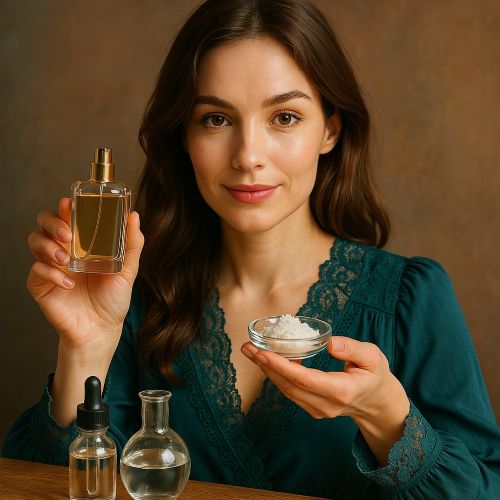
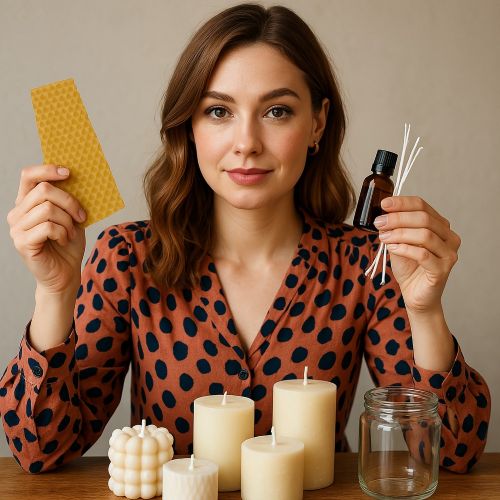







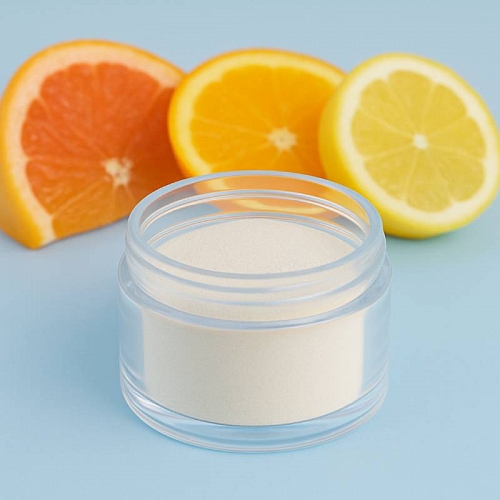
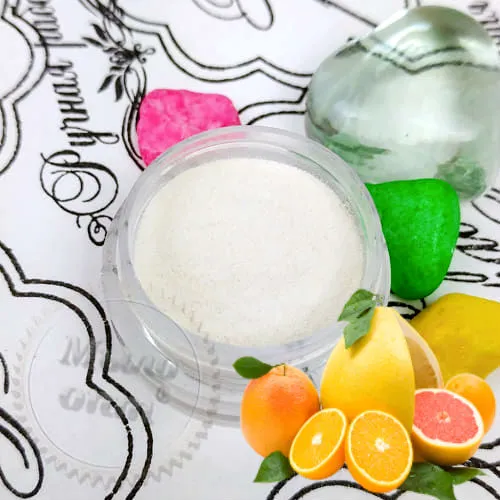






 Add to cart
Add to cart Buy in 1 click
Buy in 1 click

 Add a review
Add a review To favorites
To favorites To compare
To compare






